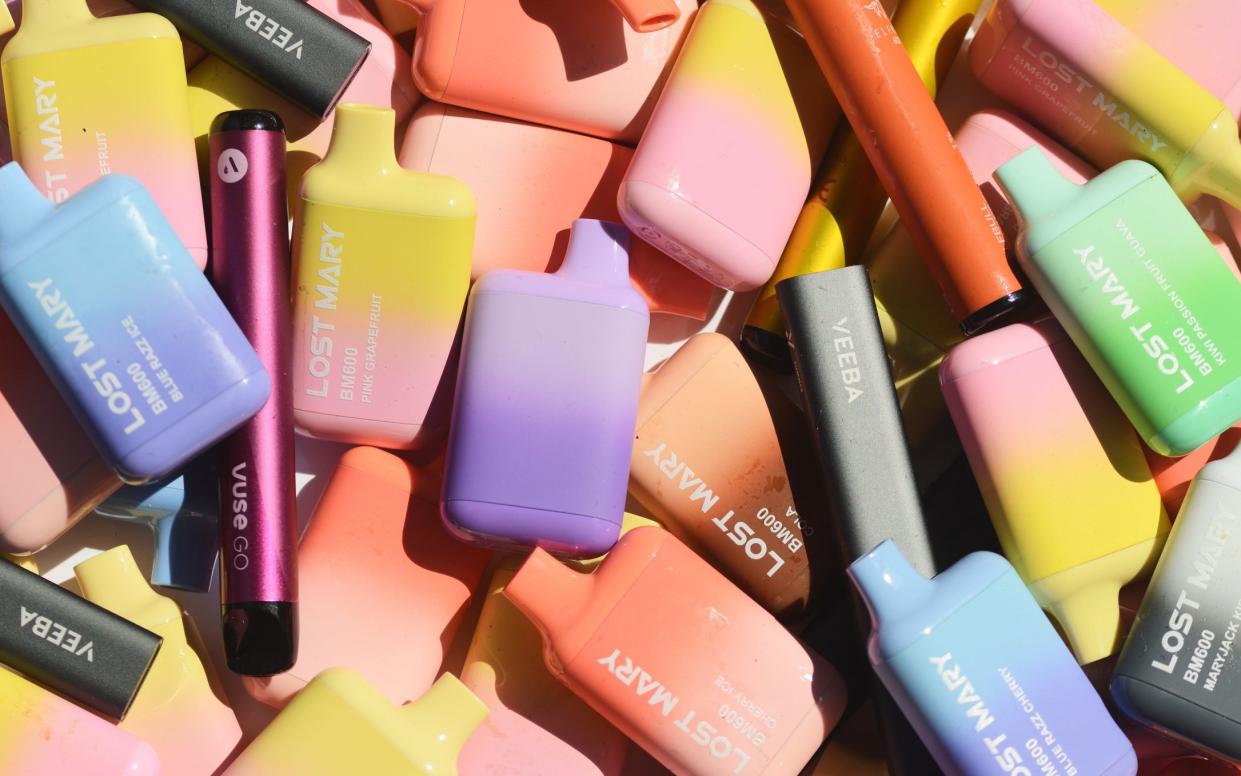Give child vapers nicotine patches to break addiction

Children addicted to vaping should be given nicotine patches or gum to help them break their addiction, public health officials have said.
A report by Public Health Wales (PHW) – one of the organisations that makes up NHS Wales – said vaping should be seen as a “dependency issue”, with young people needing support to quit.
The report found that children felt pressure to “fit in and look cool”, with “vape dealers” across social groups.
The public health body’s incident response group (IRG) has made a series of recommendations, including that young people with dependency issues be given access to nicotine replacement therapies such as chewing gum, skin patches, or inhalators.
Other recommendations include restrictions on vape visibility, appeal and availability to young people, such as a ban on colourful packaging.
Rishi Sunak has already announced plans to ban disposable vapes across the UK.
However, the Westminster Government is not thought to be considering any moves to encourage the use of nicotine patches or gum by children.
Bigger risk remains smoking
Anti-smoking group Action on Smoking and Health (ASH) said some children could benefit from such moves. Deputy chief executive Hazel Cheesman said: “It is likely that some teenagers who are vaping are addicted to nicotine and could benefit from using patches and gums as an alternative.
“Addiction is not desirable at any age and certainly not in childhood.
“However, it must be remembered that the much bigger risk to health remains smoking.
“Health services must prioritise helping children and parents who smoke to quit.”
Chris Emmerson, a public health consultant for PHW, said there is a “clear consensus view” that the rise in youth vaping “must be addressed with urgency” if it is to be tackled quickly and effectively.
He said: “These best practices provide a comprehensive framework for supporting young vapers in Wales.
“By implementing these practices, we can better address the complex needs of children and young people struggling with vaping dependency.
“Nicotine replacement therapies, which are already offered to people aged over 12 who are smoking, is one tool that could help children and young people out of their dependency on vaping in tandem with other support mechanisms.”
Desire to look cool
The report said that access to vapes was “relatively convenient” for children, which are often sourced from older siblings and family members, shops and online stores.
It said: “Vaping was most frequently observed in visible (although sometimes secluded) social settings.
“This environment seemed to contribute to feelings of peer pressure. Participants described a strong desire to fit in and look cool and found it difficult to refuse offers to share devices.”
The report recommends that vapes should be “denormalised” and not permitted in spaces intended for children.
It says the advertising and display of vapes should be restricted, with only plain, unbranded packaging.
It also calls for a ban on disposable vapes and restrictions on flavour names.
Reduce availability of vapes
A Welsh Government spokesman said: “We are very concerned by the rise in youth vaping and welcome the investigation undertaken by the IRG on vaping amongst children and young people in Wales. We will consider its recommendations carefully.
“We are working with the other UK Governments to tackle youth vaping by reducing the appeal and availability of vapes to children through the UK Tobacco and Vapes Bill.”
The UK Government has already announced plans to ban disposable vapes in England by April 2025, with a new tax on vaping being implemented in October 2026.
A Department of Health and Social Care spokesman said: “We have always been clear children should never vape.
“We are banning disposable vapes and our Tobacco and Vapes Bill includes powers to limit flavours, packaging and displays of vapes to reduce the appeal to children.
“A form of nicotine replacement therapy is already licenced in England for use in children over the age of 12 – and we continue to build the evidence on the most effective interventions to help vapers quit.”

